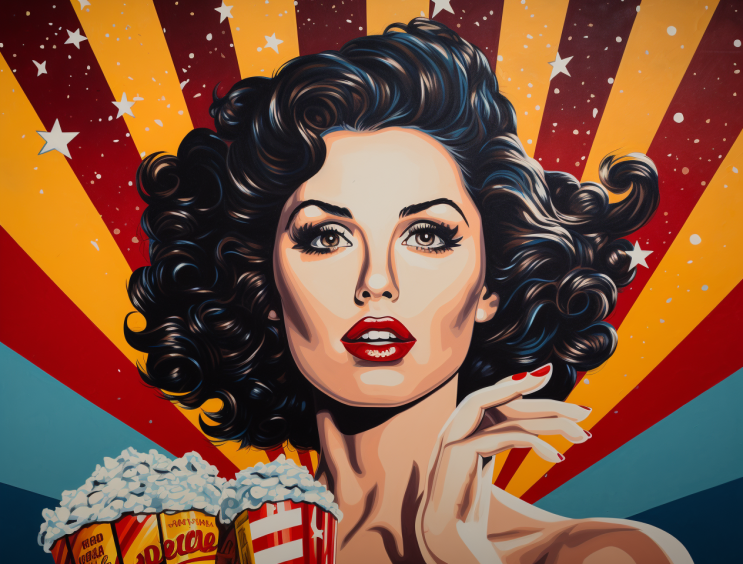Some of the funniest moments in the world of cinema have originated from the pages of books. The transition from text to screen, particularly when humor is involved, is often a challenging endeavor, but the results can be truly side-splitting. In this article, we’ll delve into the world of movie adaptations of books that have successfully made the leap from page to screen, delivering hilarity every step of the way. From witty adaptations to uproarious renditions, these stories have charmed audiences with their unique brand of comedy
1. “The Hitchhiker’s Guide to the Galaxy” by Douglas Adams
“Don’t Panic!” is the mantra of the universe’s most bewildered and bemused traveler, Arthur Dent. Douglas Adams’ science fiction masterpiece, “The Hitchhiker’s Guide to the Galaxy,” is a journey through space and absurdity. The film adaptation, with its quirky humor and memorable characters, brings Adams’ wry wit to life, creating a cinematic experience that tickles the funny bone while pondering the meaning of life, the universe, and everything.
The film, directed by Garth Jennings, captures the essence of Adams’ humor brilliantly. From the absurdity of the Vogons to the eccentricity of Zaphod Beeblebrox, it’s a space adventure with a humorous twist. Martin Freeman’s portrayal of Arthur Dent is both endearing and comical, perfectly capturing the essence of a character who finds himself in the most ludicrous situations.
2. “Bridget Jones’s Diary” by Helen Fielding
Bridget Jones, the lovably flawed singleton, leaped from the pages of Helen Fielding’s novel to the big screen in “Bridget Jones’s Diary.” Renée Zellweger’s portrayal of the charmingly imperfect Bridget captivated audiences with her humorous misadventures in love and life. The movie not only brought the iconic diary entries to life but also added an extra layer of laughter to Bridget’s antics.
The film, directed by Sharon Maguire, manages to capture the essence of the book’s humor while adding its own cinematic charm. Bridget’s escapades in the workplace, her love life, and her quest for self-improvement are portrayed with humor and relatability. Zellweger’s charismatic performance combined with the film’s witty script makes “Bridget Jones’s Diary” a delightful comedy.
3. “The Princess Bride” by William Goldman
“The Princess Bride” is a story of love, adventure, and endless humor. William Goldman’s novel and the subsequent film adaptation are both cherished for their charming wit and memorable one-liners. The film’s portrayal of Inigo Montoya’s quest for vengeance, the charming Westley, and the unforgettable Vizzini’s battle of wits are comedic gems that have etched their place in cinematic history.
Rob Reiner’s adaptation of “The Princess Bride” brings to life William Goldman’s brilliantly humorous storytelling. The film strikes a perfect balance between romance and hilarity, making it a timeless classic. The witty banter between characters, the memorable sword fights, and Vizzini’s iconic lines like “Inconceivable!” have become legendary comedic moments in cinema.
The humor in “The Princess Bride” is not only in the dialogue but also in the clever subversion of traditional fairy tale tropes. It’s a story that pokes fun at classic adventure tales while also celebrating the power of true love. The film’s enduring popularity is a testament to the timelessness of its humor and heartwarming message.
4. “Good Omens” by Neil Gaiman and Terry Pratchett
Neil Gaiman and Terry Pratchett’s “Good Omens” masterfully blends humor, fantasy, and apocalyptic themes. The Amazon Prime series adaptation captured the essence of the book’s hilarity, with David Tennant and Michael Sheen delivering brilliant performances as Crowley and Aziraphale, two celestial beings who’ve developed a fondness for Earth and its amusing quirks.
The adaptation, co-authored by Neil Gaiman himself, skillfully maintains the comedic brilliance of the source material. It takes viewers on a surreal journey through a world threatened by the impending apocalypse, all while delivering laugh-out-loud moments. The contrast between the devilish Crowley and the angelic Aziraphale is a comedic goldmine, as their unexpected camaraderie and humorous interactions drive the story forward.
One of the standout features of “Good Omens” is its ability to tackle profound and existential themes with a light-hearted touch. The series manages to infuse humor into the end-of-the-world narrative, exploring the quirks of humanity and divinity along the way. Its clever dialogue, absurd situations, and witty commentary on human behavior make it a hilarious and thought-provoking adaptation.
With a delightful balance of fantasy, wit, and apocalyptic absurdity, “Good Omens” is a prime example of how humor can be seamlessly translated from the pages of a book to the screens of a series, leaving audiences both amused and contemplative. The series doesn’t just adapt the book; it elevates it to new heights of hilarity and wonder, making it a must-watch for fans of witty and imaginative storytelling.
5. “One Flew Over the Cuckoo’s Nest” by Ken Kesey
While humor may not be the central theme of Ken Kesey’s novel, the film adaptation of “One Flew Over the Cuckoo’s Nest” found moments of dark comedy within the walls of a mental institution. Jack Nicholson’s iconic portrayal of Randle P. McMurphy, a charming troublemaker, brought moments of hilarity to this otherwise somber tale.
Milos Forman’s adaptation managed to preserve the essence of Kesey’s novel while infusing it with a unique sense of humor. The film explores the contrast between the oppressive rules of the mental institution and McMurphy’s irreverent and rebellious spirit. Nicholson’s charismatic performance and the supporting cast’s brilliant portrayals of fellow patients and staff create a blend of humor and tragedy.
The dark humor of “One Flew Over the Cuckoo’s Nest” arises from the clash between the establishment’s strict rules and McMurphy’s anarchic antics. It’s a story that finds laughter in rebellion, highlighting the resilience of the human spirit in the face of adversity. The film’s ability to balance humor with deeper themes has made it a classic that continues to resonate with audiences.
6. “A Confederacy of Dunces” by John Kennedy Toole
John Kennedy Toole’s comic novel “A Confederacy of Dunces” introduces us to the unforgettable Ignatius J. Reilly, a quirky and often infuriating character. The cinematic adaptation brought Ignatius to life through John Belushi’s unforgettable portrayal, offering a glimpse into the comically chaotic world of New Orleans.
The film adaptation, while having faced a long and tumultuous journey to the screen, captures the absurdity and humor of Ignatius’s misadventures. John Belushi’s charismatic performance as Ignatius is a testament to his comedic genius. The film portrays a bumbling yet endearing protagonist who stumbles through life while critiquing the modern world’s absurdities.
The humor in “A Confederacy of Dunces” is rooted in Ignatius’s peculiar worldview and his humorous interactions with the colorful characters of New Orleans. The city itself becomes a character in the story, adding to the chaotic charm of the narrative. Despite its challenges in adaptation, the film manages to capture the essence of the novel’s hilarity and eccentricity.
7. “Charlie and the Chocolate Factory” by Roald Dahl
Roald Dahl’s whimsical tale of “Charlie and the Chocolate Factory” has been brought to life on the big screen twice, most notably in the 1971 classic with Gene Wilder as Willy Wonka. The film adaptation brilliantly captures Dahl’s quirky humor, from the eccentric factory workers to the delightfully absurd candy creations.
Mel Stuart’s adaptation of Roald Dahl’s beloved story is a whimsical journey through a world of imagination and comedy. Gene Wilder’s portrayal of Willy Wonka adds an element of enigmatic humor to the character. Wonka’s factory, with its peculiar workforce and fantastical candies, is a playground of hilarity and wonder.
The humor in “Charlie and the Chocolate Factory” is a delightful blend of the absurd and the fantastical. Dahl’s original work is a treasure trove of imaginative comedy, from the Oompa-Loompas’ cheeky songs to the bizarre fates of the ill-behaved children. The film faithfully brings these elements to life, creating an enchanting and amusing cinematic experience for audiences of all ages.
Conclusion
In the world of cinema, the magic happens when the humor of books takes a leap onto the silver screen. These seven instances of movie adaptations of books have not only brought beloved stories to life but have also added a new dimension of hilarity. From the absurdity of “The Hitchhiker’s Guide to the Galaxy” to the lovable Bridget Jones’s diary entries, and the timeless humor of “The Princess Bride,” these adaptations have successfully captured the essence of their source material.
As we’ve seen, humor is a universal language, and when it makes the transition from page to screen, it has the power to captivate and amuse audiences in entirely new ways. From darkly comic moments in mental institutions to the quirky chaos of New Orleans, these adaptations have demonstrated the versatility of humor in storytelling. And who could forget the whimsical world of Willy Wonka’s chocolate factory, where laughter mingles with awe?
Movie adaptations of books have a unique ability to transform our favorite stories into a new realm of entertainment, giving us fresh perspectives on familiar tales. They remind us that humor is a bridge that connects the worlds of literature and cinema, and when crossed with finesse, it can create unforgettable moments of laughter and joy for generations to come.



